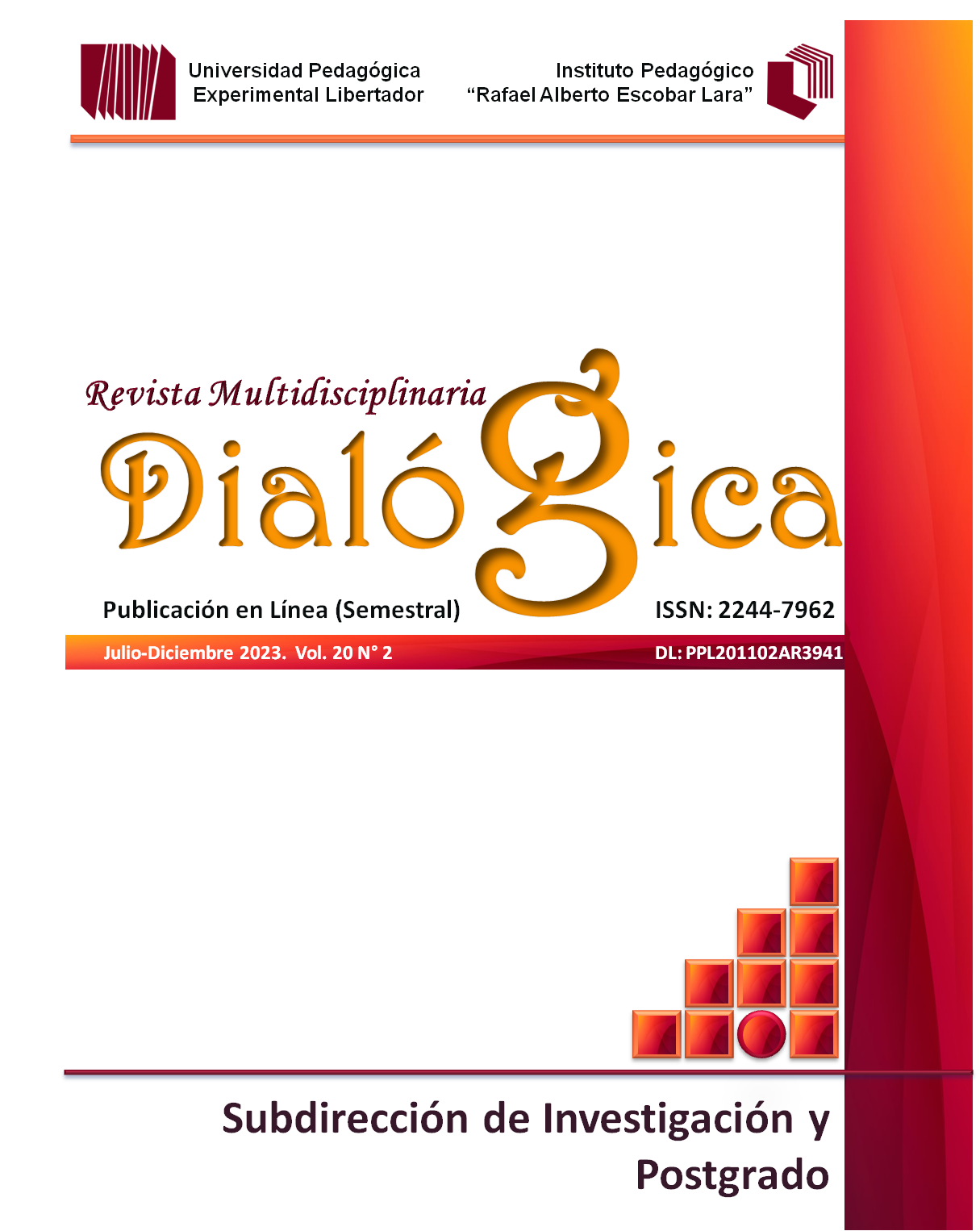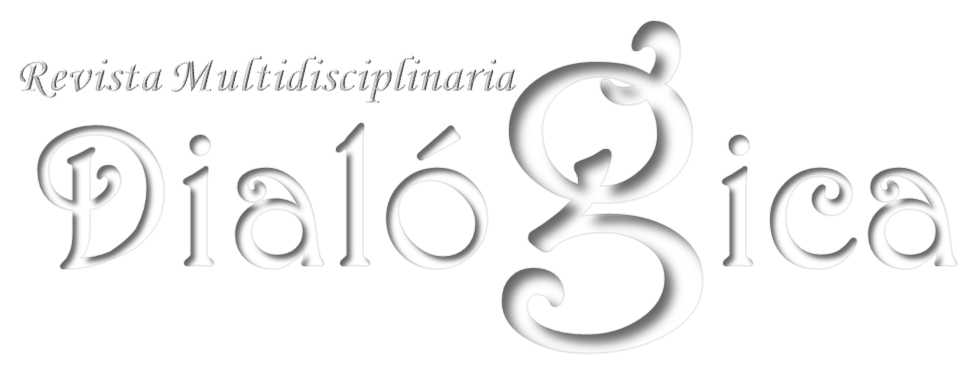NEUROEDUCATION AS A TOOL IN THE CHEMISTRY TEACHING PROCESS. A HERMENEUSIS FROM THE EDUCATIONAL ACTION
DOI:
https://doi.org/10.56219/dialgica.v20i2.2611Keywords:
teaching update, neuroscience, neuroeducation, Chemistry, emotionsAbstract
The purpose of this research was to reveal the degree of knowledge that chemistry teachers have about neuroeducation, in order to design update workshops that would respond to the knowledge deficit they might have about said neuroscience. it was framed under the qualitative paradigm, field and hermeneutic method. For the collection of information, an in-depth interview was carried out with four (4) Chemistry teachers using a script. For the interpretation of the findings, the critical nodes of the discourse were categorized and codified, and then the findings were contrasted with the existing theoretical foundation. As a conclusion, it was obtained that teachers do not have clear ideas about neuroeducation and its contributions, they lack professional updating in this regard, they know the influence that pleasant emotions have on learning, but it is more by intuition than by neuroscientific awareness.
References
Aguilar M., Caballero, S., Ormea, V., Salazar, G., Loaiza, L., Muñoz, A. (2017). La importancia del sueño en el aprendizaje: visos desde la perspectiva de la neurociencia. Avances En Psicología. [Revista en línea] 25(2), 129–137. Disponible: https://doi.org/10.33539/avpsicol.2017.v25n2.349. DOI: https://doi.org/10.33539/avpsicol.2017.v25n2.349
Araya, S y Espinoza, L (2020) Aportes desde las neurociencias para la comprensión de los procesos de aprendizaje en los contextos educativos. Propósitos y Representaciones, 8(1), e312. [Revista en linea] Disponible: http://www.scielo.org.pe/scielo.php?pid=S230779992020000200013&script=sciabstract DOI: https://doi.org/10.20511/pyr2020.v8n1.312
Ayala, (2012) Neuroeducación: ¿cómo aprende el cerebro? Educación 3.0, [Revista en línea] nº 44 Disponible: https://www.educaciontrespuntocero.com/noticias/neuroeducacion cerebro/#:~:text=El%20'padre%20oficial'%20de%20la,proceso%20de%20ense%C3%B1anza%20y%20aprendizaje.
Bueno, D (2018) David Bueno explica cómo cambia nuestro cerebro al aprender. [video en línea] disponible: https://www.youtube.com/watch?v=nXQe7I5WBXs
Carminati, M y Waipan,L (2012) Integrando la neuroeducación en el aula. Buenos Aires: Editorial Bonum.
Duarte y Parra (2015) Lo que debes saber de una tesis doctoral. Maracay: IMPRECOLOR . C.A
Empresas Polar (2022, abril) Docentes altamente eficientes, Educando estudiantes altamente inteligentes [serie de diapositivas y grabación en audio del taller ofrecido en modalidad virtual].
Forés, A., Gamo, J., Guillén, J., Hernández, T., Ligioiz, M., Pardo F., y Trinidad, C. (2015) Neuromitos en educación. El aprendizaje desde la neurociencia. Barcelona: Plataforma Editorial.
Galvagno, G y Elegir, A (2018) Trazando puentes entre las neurociencias y la educación. Aportes, límites y caminos futuros en el campo educativo. Psicogente [Revista en línea] 21(40), 476-494. Disponible: https://doi.org/10.17081/psico.21.40.3087 DOI: https://doi.org/10.17081/psico.21.40.3087
Guillen, J (2018) Programa 12 - Jesús Guillén: neuroeducación y neuromitos - Ideas para profes [video en línea] Disponible: https://www.youtube.com/watch?v=m2v5QwXr2_0
ILET (s.f.) Qué es la didáctica y cuáles son sus principios. Ilet.mx [Página web en línea]. Disponible:https://ilet.mx/cuernavaca/que-es-la-didactica-y-cuales-son-sus-principios/
Ley Orgánica de Educación (1999) Gaceta Oficial de la República Bolivariana de Venezuela, 5.585, Agosto 15, 2015.
Magendzo, A y Pavez, J (1979) El perfeccionamiento docente como estrategia de cambio educacional. Revista Latinoamericana de Estudios Educativos. [Revista en línea] vol. IX, núm. 3, 1979, pp. 123-131 Disponible: https://www.cee.edu.mx/rlee/revista/r1971_1980/r_texto/t_1979_3_05.pdf
Martínez, M (2004) Ciencia y arte en la metodología cuantitativa. México D.F: Editorial Trillas.
Menarguez, A (2016). El cerebro necesita emocionarse para aprender. El País. [Revista en línea] disponible: https://elpais.com/economia/2016/07/17/actualidad/1468776267_359871.html
Mora, F (2013) Neuroeducación, solo se Aprende lo que se ama. Madrid: Editorial Alianza.
Navarro, A (2016) Pon en marcha tu cerebro. Barcelona: Editorial Paidos.
OCDE. (2009) Informe TALIS. La creación de entornos eficaces de enseñanza y aprendizaje. Síntesis de los primeros resultados. Santillana [Documento en línea] Disponible: https://www.oecd.org/centrodemexico/medios/43058438.pdf.
Oliva, M (2013) Neurociencia y educación: estrategias de enseñanza-claves para el aprendizaje. De la discapacidad a la sobredotación intelectual. En International Conference Re-conceptualizing the professional identity of the European teacher. [Documento en línea] (357-372) Disponible: http://hdl.handle.net/11441/56754
Ortiz, L (2015) Cómo aprende el Cerebro Humano y cómo Deberían Enseñar los Docentes. Bogotá: Ediciones de la U.
Pinto, G (2003) Didáctica de la Química y la Vida Cotidiana, Anales de la Real Sociedad Española de Química. [Revista en línea] Segunda Época enero – marzo 2003. Disponible: file:///C:/Users/tonny/Downloads/Dialnet-DidacticaDeLaQuimicaYVidaCotidiana-637805.pdf.
Downloads
Published
How to Cite
Issue
Section
License
Copyright (c) 2024 Antonio Ytriago

This work is licensed under a Creative Commons Attribution-NonCommercial-ShareAlike 4.0 International License.


 @revistadialogica
@revistadialogica DialogicaUPEL
DialogicaUPEL RevistaDialogicaUPELMaracay
RevistaDialogicaUPELMaracay dialógicaupel@gmail.com
dialógicaupel@gmail.com dialogicaupel.blogspot.com
dialogicaupel.blogspot.com https://issuu.com/dialogicaupel
https://issuu.com/dialogicaupel https://revistas.upel.edu.ve/index.php/dialogica/
https://revistas.upel.edu.ve/index.php/dialogica/









